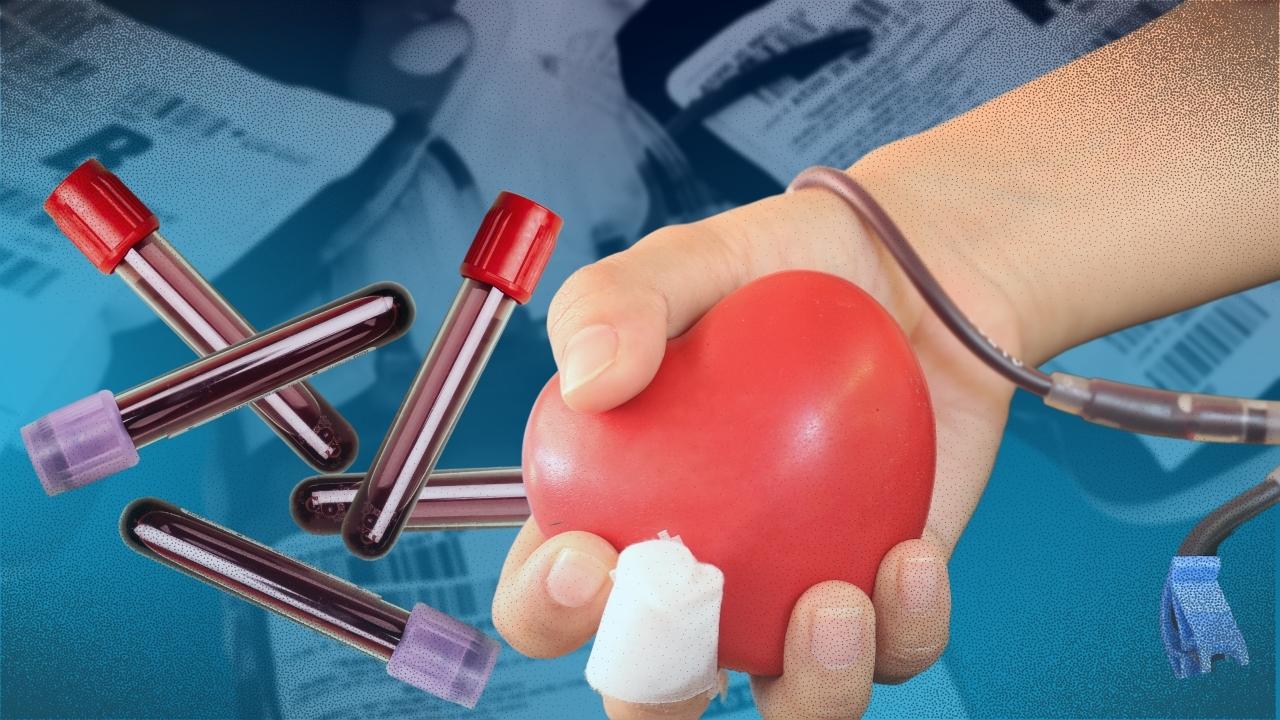Blood donation FAQs during pandemic: Can cured COVID patients donate?
MANILA, Philippines — The COVID-19 pandemic has led to the adjustments in the medical-related procedures like donating blood.
The adjustments in protocols have led to the slump of blood supply at the height of the pandemic. The blood banks are now beginning to replenish its stockpile with units of the vital fluid, but the misconceptions in blood donations could stem the improvement of the situation.
To clear some misconceptions, Philippine Red Cross National Blood Services Director Christie Monina Nalupta has spoken to INQUIRER.net in an online interview to answer the frequently asked questions regarding blood donation as the country marks the
Blood Donation Month in July.
Can a recovered COVID-19 patient donate blood?
A recovered COVID-19 patient could still donate blood. However, there are several things that should be considered before making the donation, like the period between the time of infection.
Nalupta said a recovered COVID-19 patient could donate 14 days after recovery.
Article continues after this advertisement“Usually the recovery period is 14 days, so after 14 days, we need to count another 14 days before we could donate already. [That is to say], one month waiting period from the time of infection,” she explained.
Article continues after this advertisementWhat about those who recently received their vaccines?
The COVID-19 vaccinated — which now accounts for more than 70 million Filipinos — could also donate blood. But only if they have no symptoms by the time of donation.
“Actually, once you have your vaccine, COVID-19 vaccine, you can immediately donate as long as you don’t feel any side effects,” Nalupta said.
“If you are asymptomatic, and it’s time for you to donate blood, then you may proceed.”
Should a COVID-19-vaccinated donor experience side effects, Nalupta said it is advisable for them to take a rest.
“Let it recover and then after that if they feel better, they may donate blood already,” she said.
In an advisory, the PRC Blood Services said those who get mild vaccine-related side effects, such as a localized muscle ache or pain at the injection site, could only donate seven days after symptoms disappear.
For other vaccine-related side effects like fever or chills, rashes, generalized muscle ache or joint pain, swelling lymph nodes, and other systemic symptoms, they could donate blood at least 24 days after the symptoms disappear.
Is COVID-19 transmissible by blood?
Of course not, even the World Health Organization said so, according to Nalupta.
However, she recognizes that the several precautionary measures for the blood donation during the pandemic may create such impression.
“We are not allowing the donation of those infected [with COVID-19] because this is another layer of protection towards our recipient, and again, we also would want to make sure that at the time of donation that our blood donor is healthy,” she explained.
“We would want them to be free of any infections, for that matter,” she further stressed.
Interested blood donors may call the PRC’s 143 hotline or (+632) 8790-2300.
RELATED STORY:
PH Blood Donors Month: FAQs, myths on giving blood
For more news about the novel coronavirus click here.
What you need to know about Coronavirus.
For more information on COVID-19, call the DOH Hotline: (02) 86517800 local 1149/1150.
The Inquirer Foundation supports our healthcare frontliners and is still accepting cash donations to be deposited at Banco de Oro (BDO) current account #007960018860 or donate through PayMaya using this link.


